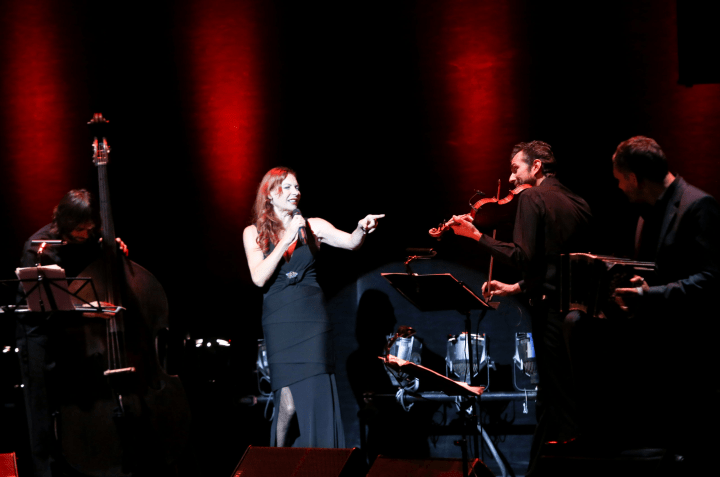Publication: Süddeutsche Zeitung
Date: 19 April, 2020
Dessau-Roßlau/New York (dpa) – In Gedenken an die Befreiung der deutschen Konzentrationslager vor 75 Jahren gibt die international bekannte Musicalsängerin Ute Lemper am Dienstag ein Online-Konzert aus ihrem New Yorker Wohnzimmer. Das teilte am Sonntag das Kurt Weill Fest mit, das das Konzert am Dienstag (20.00 Uhr) auf seiner Facebook-Seite überträgt. Lemper werde bei dem Auftritt “Lieder der Rebellion, der Hoffnung und des Widerstands, die alle während des Holocausts geschrieben wurden” singen.
Der Auftritt ist Teil einer Konzertreihe der Carnegie Hall in New York, die für die Übertragung nach Europa mit dem Kurt Weill Fest kooperiert. Das Kurt Weill Fest musste in diesem Jahr wegen der Corona-Krise abgebrochen werden. Im vorigen Jahr hatte Lemper an dem 1990 ins Leben gerufenen jährlichen Festival zu Ehren des berühmten Komponisten teilgenommen. Kurt Weills Leben ist untrennbar mit dem Holocaust und den beiden Städten Dessau und New York verbunden: Er wurde 1900 in Dessau als Sohn eines jüdischen Kantors geboren.
Nach Regierungsantritt der Nazis floh er über Berlin und Paris in die USA. Am New Yorker Broadway wurde Weill mit seiner Musik zum Star. Er starb 1950 in New York. Auch Lemper spielte an der weltbekannten Musical-Meile in New York.
Festival-Intendant Jan Henric Bogen dankte Lemper und der Carnegie Hall für die gemeinsame Veranstaltung. “Es ist wunderbar, dass wir in diesen unsicheren Zeiten unserem Publikum etwas Trost und Zerstreuung durch Musik spenden können”, sagte Bogen. “Und wir freuen uns umso mehr darauf, wenn Musik-Erleben auch wieder gemeinsam im Konzertsaal möglich sein wird.”
Click here to read the article at Süddeutsche Zeitung online




 Photo by: Brigitte Dummer
Photo by: Brigitte Dummer Photo by: Brigitte Dummer
Photo by: Brigitte Dummer